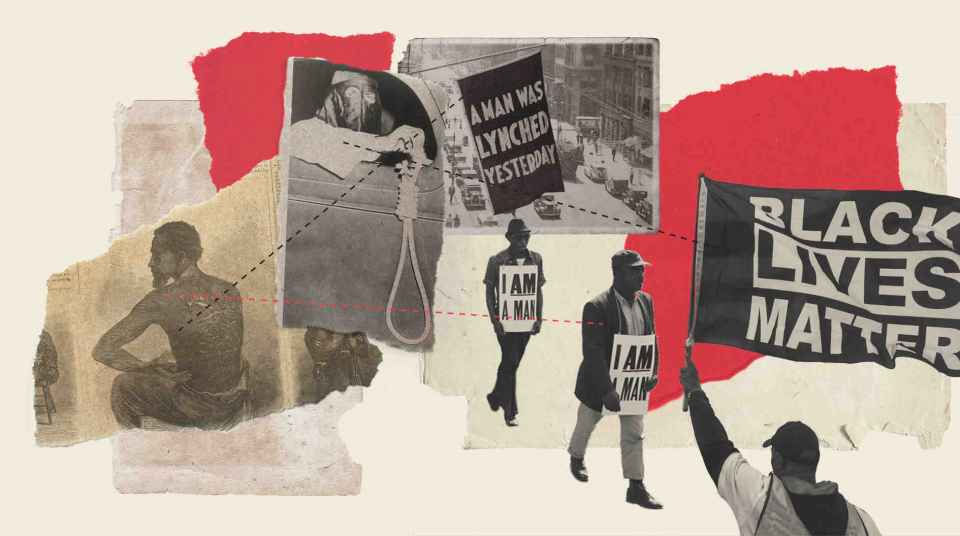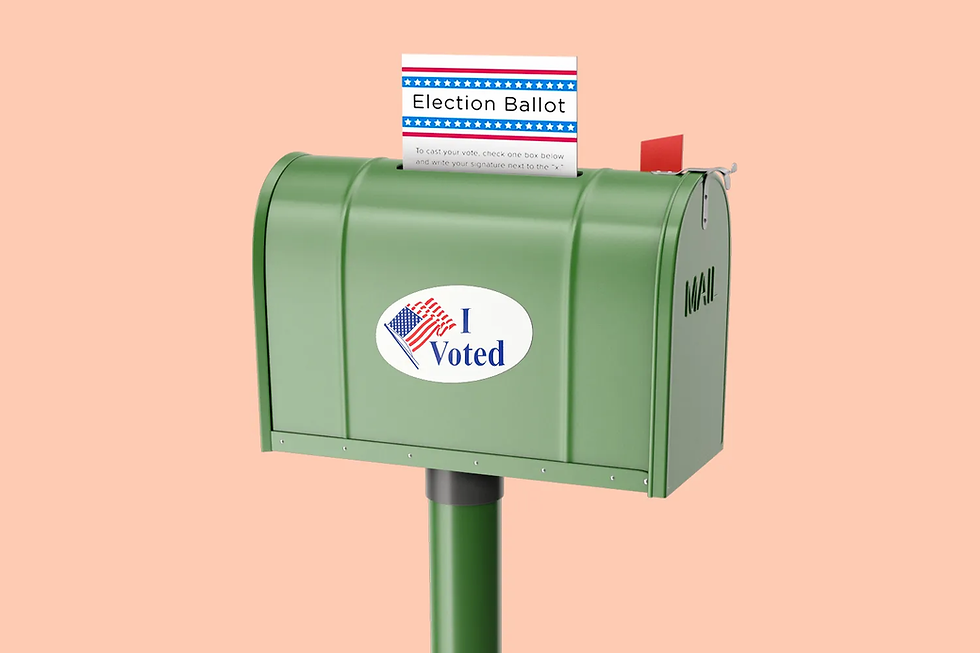What Reparations Are and Why Black People Deserve Them
- Editorial Team

- Jun 30, 2020
- 4 min read

Reparations is basically the making of amends for previous wrongdoings. This is usually in the form of money or other methods of providing help to those who’ve been wronged.
With the increase in protests and education about anti-racism in America, many Black people are demanding reparations for slavery. Some may see this as a radical idea, but reparations are quite common in times following war and disaster.
Black people were kidnapped from their homes, raped, beaten, stripped of their cultures and languages, forced into free labor, and really, just tortured for hundreds of years. After slavery was abolished, Black people then had to go through Jim Crow era segregation, lynching, police brutality, inadequate housing, lesser education, lesser healthcare, and more. Black people have always been treated as lesser in this country, and calls for reparations are completely warranted.
Many Americans are not sure what reparations even are or how it would work. Some say that doing something like that just would not work in America. But America, has in fact, done this in the past.
After Lincoln signed the Emancipation Proclamation, he signed another bill called the District of Columbia Emancipation Act. This act, actually paid reparations for the white enslavers. They got up to $300 per freed enslaved person. The enslaved people did not receive a single penny for the centuries of abuse and exploitation.
Clearly, America can scrounge together the money to appease the white and wealthy, but they can’t seem to find the money to help the people that they took advantage of.
It is estimated that 11 million people died during the Holocaust. One of the world’s most atrocious events in history. Germany then recognized their wrong doings and created a fund to pay reparations to those affected. They paid almost $90 billion to victims of the Holocaust. They admitted that what they did was wrong, and they took action to make some sort of amends. They also have a national museum dedicated to the history of the horrendous act, not to brag, but to learn from it.
In America on the other hand, over 50 million African Americans died from slavery alone, not including the hate crimes and police brutality in more modern times. How did America respond to enslaving and murdered millions of people? Paying the enslavers for their loss of stolen labor. America also built up countless monuments to ensalvers and other Confederate leaders, claiming their “heritage”. They do not have a national museum dedicated to the education of slavery and our wrongdoings.
I’ve talked about this false heritage in my Confederate flag post, so I will not drag on about it now. I just know that America’s values are off and reparations need to be paid to Black Americans.
BLM activist, DeRay Mckesson says, “Correcting historical wrongs is not a radical thing”. And it really shouldn’t be. The very least America could do, would be to pay reparations, but many Americans refuse to even apologize for what happened. Black people simply do not get the respect that they deserve in this country.
The US also paid reparations to residents of Guam after Japan occupied the US territory while trying to take it over. Many residents suffered during this time, so the US pays certain people around $10,000.
After WWII, the US paid reparations to 82,000 Japanese Americans for unjustly imprisoning them.
Reparations is not a new idea in America, it is just something that the US is not willing to do for Black people, the ones they tortured and exploited the most.
There have been some more local instances of reparations being paid, but the national level is a different story. The bill H.R. 40 is legislation seeking to establish a commission to study and develop reparation proposals. So to be clear, this bill is not to PAY reparations, just study what could be done. This bill had been up for 3 decades, but it has never received enough support to pass. A bill dedicated to studying reparations can’t even pass after decades of being brought up.
This bill has been gaining in popularity recently, and a handful of politicians are bringing up the topic of reparations, but our country has so far to go until a national level of reparations is passed.
In the meantime, there are still ways for you to help. You can find local reparation funds near you. Facebook often times has local pages for people who need help. One example is Queer Exchange Philly. I urge all of you to find a local fund to pay reparations to people in your community. You can also sign this petition to demand reparations be paid on a national level.
I also urge all of you to read more about this topic and educate yourselves about this important cause. I have many sources cited below and linked in my “Resources” tab.
Amell, Jennifer. “Reparations Thread Calls upon Privileged to Support BIPOC in Time of COVID-19 Need.” Philadelphia Gay News, 5 May 2020, epgn.com/2020/05/05/reparations-thread-calls-upon-privileged-to-support-bipoc-in-time-of-covid-19-need/. Accessed 30 June 2020.
BBC Newsnight. “Black Lives Matter Activist DeRay Mckesson on Reparations for Slavery - BBC Newsnight.” YouTube, 29 Apr. 2019, www.youtube.com/watch?v=UAMhi96ru_Y. Accessed 30 June 2020.
Eddy, Melissa. “For 60th Year, Germany Honors Duty to Pay Holocaust Victims.” The New York Times, 17 Nov. 2012, www.nytimes.com/2012/11/18/world/europe/for-60th-year-germany-honors-duty-to-pay-holocaust-victims.html. Accessed 30 June 2020.
Foundation, Thomson Reuters. “Black Lives Matter Protests Spur Calls for Reparations.” News.Trust.Org, 24 June 2020, news.trust.org/item/20200624170052-dt00z/. Accessed 30 June 2020.
Goldberg, Emma. “How Reparations for Slavery Became a 2020 Campaign Issue.” The New York Times, 18 June 2020, www.nytimes.com/2020/06/18/us/politics/reparations-slavery.html. Accessed 30 June 2020.
Hunter, Tera W. “Opinion | When Slaveowners Got Reparations.” The New York Times, 16 Apr. 2019, www.nytimes.com/2019/04/16/opinion/when-slaveowners-got-reparations.html. Accessed 30 June 2020.
Jackson Lee, Sheila. “ACLU News & Commentary.” American Civil Liberties Union, 22 May 2020, www.aclu.org/news/racial-justice/h-r-40-is-not-a-symbolic-act-its-a-path-to-restorative-justice/. Accessed 30 June 2020.
Neiman, Susan. “Op-Ed: Germany Paid Holocaust Reparations. Will the U.S. Do the Same for Slavery?” Los Angeles Times, 22 July 2019, www.latimes.com/opinion/story/2019-07-19/reparations-germany-hr40-holocaust-slavery. Accessed 30 June 2020.
Reiter, Bernd. “What US Slavery Reparations and Post-Holocaust Germany Have in Common.” Quartz, 2 Aug. 2019, qz.com/1680558/for-slavery-reparations-the-us-can-look-to-post-holocaust-germany/. Accessed 30 June 2020.
Taifa, Nkechi. “Reparations – Has the Time Finally Come?” Aclu.Org, 27 May 2020, www.aclu.org/news/racial-justice/reparations-has-the-time-finally-come/. Accessed 10 June 2020.



Comments